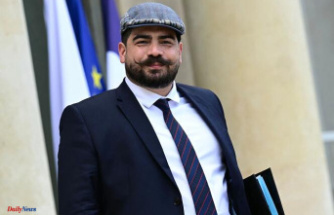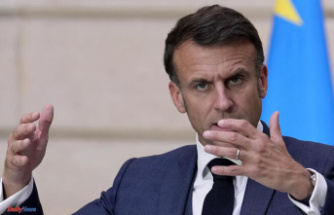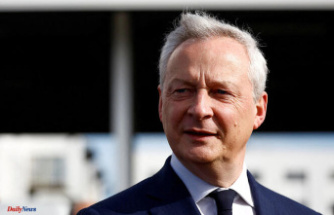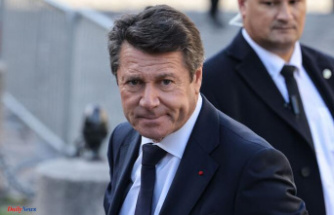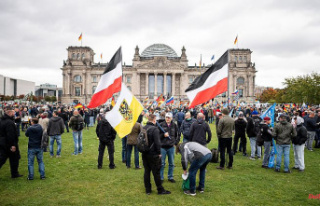Tesla boss Elon Musk suggests that the majority of eastern Ukraine has no problem with belonging to Russia. In doing so, Musk ignores key political events of the past ten years - and current polls.
US billionaire Elon Musk has caused a lot of excitement with his tweets, some of which use outdated clichés about the political east-west divide in Ukraine. Among other things, he posted a voting card from the 2012 parliamentary election showing that Ukraine's south-eastern regions supported what he described as a "pro-Russian" Party of Regions.
It is of course true that the Party of Regions around President Viktor Yanukovych, who fled to Russia after the Maidan revolution in 2014, won the election thanks to support from the predominantly Russian-speaking regions of the country. But with his map far removed from today's reality, Musk ignores key political events of the past decade. In addition to the Maidan revolution, this includes the Russian annexation of Crimea, the war in Donbass provoked by Russia and the large-scale invasion on February 24, 2022 - but also the fact that in the 2019 parliamentary elections the party of today's President Volodymyr Zelenskyj was everywhere in the southeast ranked first, except in Donetsk and Luhansk regions, where it ranked second.
Even the term "pro-Russian" is not without controversy when it comes to the Party of Regions. Oddly enough, apart from the fact that the goal of friendly relations with Russia does not mean that one wants to cede territory to Russia, it was Yanukovych under whose presidency the association agreement with the EU was initiated. The fact that it was not signed was primarily due to pressure from Moscow and not to Yanukovych's will.
And while it's also true that Yanukovych and other allies like ex-Prime Minister Mykola Azarov fled to Russia after the Maidan revolution, what was then the Party of Regions' biggest donor is now the single biggest donor to the Ukrainian army: the Donetsk-born richest man in the Ukraine, Rinat Akhmetov. Akhmetov worked closely with Yanukovych's successor, Petro Poroshenko, who was critical of Russia - and before the great war he had conflicts with Zelensky, which, however, had nothing to do with Russia.
Many prominent representatives of the Party of Regions, previously considered pro-Russian, changed their minds back in 2014. The mayor of Kharkov, Hennady Kernes, who is popular at home and controversial in the rest of the country, played a major role in preventing the proclamation of a similar "people's republic" in the eastern Ukrainian city in spring 2014 as in Donetsk and Luhansk. Kernes won the last mayoral elections in autumn 2020 with 60 percent. He died in December 2020 as a result of a corona disease - aggravated by the fact that after an attack he could only move in a wheelchair.
His former companion Mykhailo Dobkin, now both mayor and governor of Kharkiv and a former member of parliament for the party of the region, now serves in the Ukrainian army. His specific role is unclear, but a video shared by his daughter shows Dobkin in army uniform in a town in Kharkiv district that was liberated just a few days ago.
He is by no means the only example of how prominent figures from Yanukovych's party took on important posts in the country's defense after February 24. For example, Oleksandr Vikul, who was deputy prime minister in Yanukovych's time, has taken over the management of the military administration in his hometown of Kryvyi Rih in southern Ukraine. "After what Russia did, we don't have a common past, just a different future," he said in an interview with the Internet newspaper Ukrayinska Pravda in May. The mayor of Odessa, Hennady Trukhanov, who was feared that he held a Russian passport at least in the past, also took a clear stance.
Even the now-banned pro-Russian Opposition Platform party, which finished second in the 2019 general election - albeit far behind Zelenskyy's party - was more complicated than it first appears on closer inspection. The group around Viktor Medvedchuk, an oligarch close to Putin who was recently exchanged for Ukrainian soldiers, was clearly pro-Kremlin. However, the other part around the former party leader Yuri Boyko was more interested in business. In April, these deputies registered the "Platform for Life and Peace" group of deputies in parliament, which wants to position itself as social democratic and pro-European.
It is questionable whether Ukrainian society will buy this from the former members of the opposition platform. What is clear, however, is that a pro-Russian policy will no longer work anywhere in Ukraine - not even deep in the east. According to the latest poll by the Kyiv International Sociology Institute in mid-September, the number of people opposed to any territorial compromise with Russia rose from 84 to 87 percent. 57 percent of ethnic Russians in Ukraine and 85 percent of the larger group of Russian-speaking ethnic Ukrainians also agree. Only 24 percent of ethnic Russians are willing to sacrifice territory for peace. A minority in the minority - that's not enough for Elon Musk's "peace plan".


